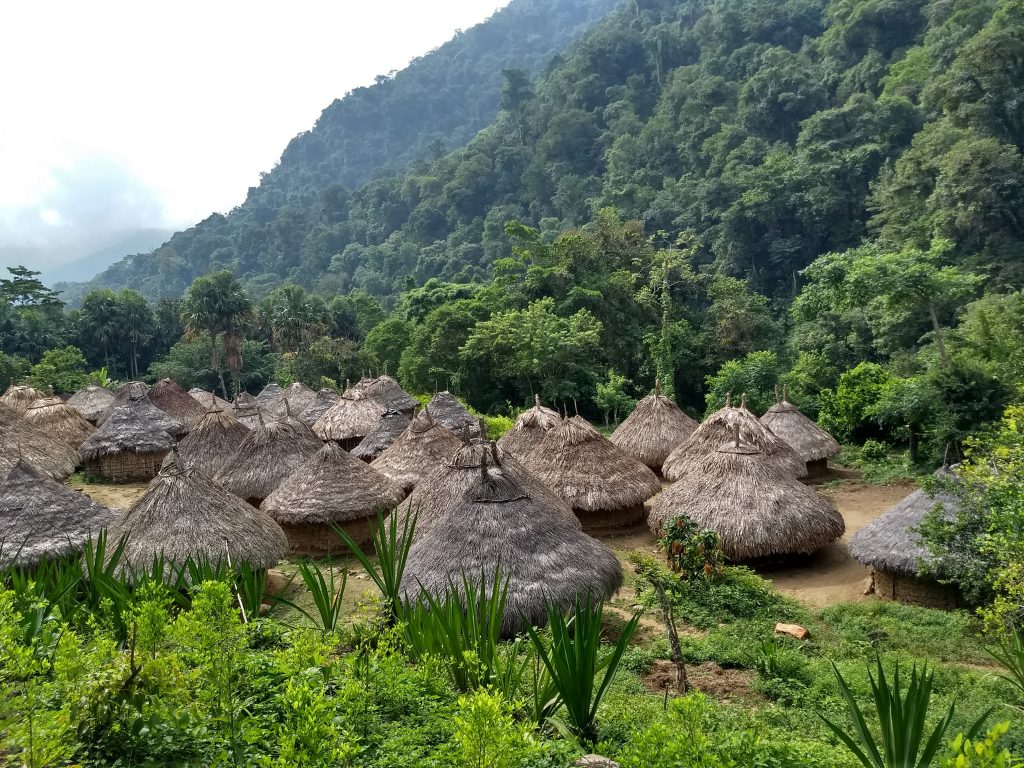Final work outline

“If we equip and empower communities to heal, to know and build their healing capacities, and to affirm communal obligations as part of the pursuit of good health -as Indigenous models suggest are possible- we would tap not only the strengths of a vibrant public health resource but also the potential healing and disease prevention that only strong communities can produce”
(Carolyn Smith-Morris, 2020)
For our course “Writing the Field” I want to work on a paper about the concept “Western medicine” as a problem of overgeneralization. The concept “Western medicine” has been used indistinctly and abundantly without considering how imprecise and equivocal is.
Is “Western” the most appropriate adjective to describe what the authors are trying to refer to? I think not. There are countries that follow the same patterns of “Western” thinking that she describes that are not in the West. These authors are overgeneralizing by using the adjective “Western.
Thus, one important point will be talking about the fallacy and cognitive distortion called overgeneralization. This distortion of thought consists of drawing a general conclusion from a single particular fact without sufficient basis. For example, a person who looks for a job and does not find it and concludes: “I will never get a job.” Another person who feels sad and thinks: “I will always be like this.”
It may even be unfair to say “Western” and imply that “Western” refers to non-indigenous thinking, because Western countries also include Guatemala and Bolivia, where indigenous people make up more than 40% of the population. I think the big conceptual gap is that the term “Western” is not very well defined.
Another problem is that by opposing “Western” one might conclude that “Eastern” is the solution to the problems authors describe. However, is that what researchers and academicians want to say when they use the concept “Western medicine”?
To contribute to a clarification of this concept I will write a paper that contains the following sections:
- What has been referred to as “Western” medicine?
- “Western medicine as opposed to “Eastern medicine” or what?
- Marginalization: unfair competition against Indigenous knowledge
To do this, I have set some deadlines:
Introduction : February 4
First section : February 13
Second section : February 27
Third section : March 12
Conclusion : March 19
My working abstract will be:
Abstract. Is “Western medicine” the most appropriate adjective to describe what contemporary researchers are trying to refer to? Perhaps not. What do researchers and academics mean when they use the term “Western medicine”? Is “Eastern medicine” the opposite? There are countries that follow the same patterns of “Western” thinking that they describe that are not in the West. It may even be unfair to say “Western medicine” and imply that “Western” refers to non-indigenous thinking. However, there are two countries in the West, Guatemala and Bolivia, where indigenous people make up more than 40% of the population. Therefore, the term “Western medicine” has been used vaguely and abundantly without considering how imprecise and ambiguous it is. There is a problem of overgeneralization, which is the fallacy and cognitive distortion called overgeneralization. This distortion of thought consists of drawing a general conclusion from a single particular fact without sufficient basis. For example, a person who looks for a job and does not find one and concludes: “I will never get a job. Another person who feels sad and thinks: “I will always be this way. A Google search for “Western medicine” shows 9,860,000 results (January 30, 2024), which shows how widespread this term is. So in this study we want to answer the question: What is the problem with the term “Western medicine”? In this study we will not analyze the possible shortcomings of the practice of “Western medicine”, but the use of the term. To do so, we will examine what has been called “Western medicine,” describe the possible opposites of “Western medicine,” and explain how the use of this term has contributed to the marginalization of indigenous traditional medicine.
Keywords: Western medicine, Traditional Medicine, Indigenous, Biomedical medicine, Healing, Health


Hi Carlos,
I can’t wait to read your paper! The issues surrounding the concept of “Western” medicine are ones that I’ve grappled with myself in the past; albeit on a more personal/philosophical scale, not necessarily in writing. I, too, find discomfort in such an over-generalized and essentialist term and am still reluctant to use it despite the lack of a suitable, widely accepted alternative, as you explain.
In my personal opinion, I think the term “biomedicine,” as you mentioned to Robb, is probably the best option that I’ve heard. I’m not the biggest fan of some of the others I’ve come across, to say the least. Terms such as “conventional” or “mainstream” medicine, as you point out, carry the same bias and connotation that completely marginalizes traditional Indigenous medical practices. Even worse, terms like “science-based” or “evidence-based” medicine do the same, with the added problematic prejudice of not recognizing the validity of Indigenous traditional knowledge systems.
In this circumstance, I see the “Western” vs “non-Western” medicine debate as a critical, supplementary ramification of the broader discourse surrounding the integration of “Western” science and Traditional Ecological Knowledge. Is this (more or less) what you are going to be discussing in your third section?
Regardless, this is a very crucial topic/debate with significance that cross-cuts many disciplines. I’m really looking forward to hearing your take on it!
Hi Selby, thanks for your motivating comment 🙂 I have a lot of ideas but writing is not easy, as we have largely discussed in class. I agree with what you say. I do not have anything to add. I’d only say that I don’t like generalizations at all. I think that real life is too complex to do generalizations and I think we do that all the time, but it seems to be a “comfort zone”. We don’t need to think much when we generalize, but it is not fair with reality, which is enormously complex. And it is not fair when people with names and faces are included in these generalizations.
Thanks again! and the very best for your article too!
Carlos
This will be a very interesting paper! I’ve often thought of that – yes, we have the West, but also East, South, and North, so how does that interplay? How do we conceptualize people ‘in the West’ who do not abide by traditional Western approaches along with people ‘outside of the West’ who do? You’ve picked a very interesting and complex topic, and I wish you luck working it out! Very impressive that you already have that working abstract. I’m also very curious to see how your background will come into play here, and see how you approach this in a way that may not be often favoured by us strict anthropologists/archaeologists.
Hi Paige,
You’ve set high expectations on my work hehehe. I’ll do my best! I think that it’s very interesting that we as a group are sharing this course because I’m learning a lot from you and your experiences. I hope that you can also learn something new from me 🙂
Thanks Carlos. Can you remind us again where you will hope to present/publish this? That will help assess your timeline.
Also: I might suggest you poke around Medical Anthropology, as there is a rich literature that has grappled with some of these issues (see, for instance, https://onlinelibrary.wiley.com/doi/abs/10.1002/9781119718963.ch21). It seems like, for instance, the concept of “medical pluralism” might be of use? And I think, perhaps, “biomedicine” is an often deployed term for what you are getting at?
Very cool paper! I’m excited to see what you will do with this topic and I love how you are delving into what “Western” means. I remember seeing the phrase “Western culture” in so many anthropological sources and being annoyed that there was such a strict binary implied: the West and the Rest. I also dislike saying “Western culture” because each Western country is different. To avoid homogenizing and to capture the variety, I say “Western cultures.”
It is interesting to think about what the term ‘Western’ is mobilized to do: differentiate from Eastern, from Indigenous, and to consider if it fails in this work, as you address here. Interesting too, to think of Western as meaning Modern Western (why has modern been dropped?). And if Western is an overgeneralization, it is imprecise as a concept (which might help or hinder its utility).
Hi Emily, yes, you’re right. I haven’t even thought about the “Modern Western”. I think that when people use other languages, translations are not very accurate and all these concepts change a lot. Now I’m thinking that it has to be clarified that this discussion is based on the English language.
Carlos –
I agree with the broad over-generalization of the word “Western”… I am personally struggling of what to use instead. Does “industrialized medicine” fit? After all, when we describe Western medicine versus Indigenous, we are usually speaking to a heavy reliance on complex machines for diagnosis and treatment. Can’t wait to read more!
That’s the problem, that there are not many options instead. One that could be used is biomedical medicine, which describes the type of medicine regardless of where it is used. That is my point, that perhaps the problem is not with biomedical medicine itself, but how health professionals and governments have dealt with it.